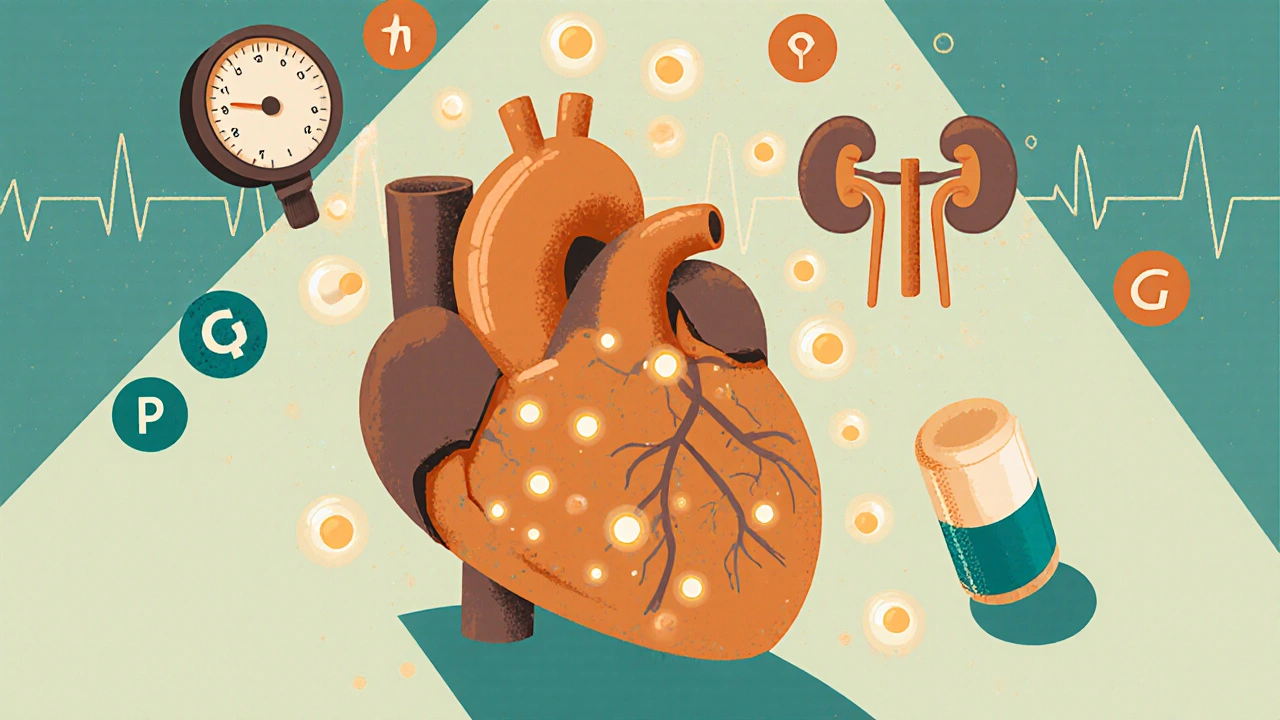
Atenolol is a beta blocker commonly prescribed for high blood pressure, angina, and after a heart attack. It’s been used for decades and works by slowing your heart rate and reducing the force of your heartbeat. But behind its effectiveness lies a quiet risk many patients don’t talk about: electrolyte imbalances.
How atenolol affects your body’s electrolytes
Atenolol doesn’t directly pull potassium or sodium out of your blood. Instead, it changes how your kidneys respond to hormones like aldosterone. This can lead to reduced excretion of potassium, which sounds good-until it doesn’t. Some people end up with too much potassium (hyperkalemia), while others, especially those on diuretics too, see their levels drop (hypokalemia). Sodium levels can dip as well, especially in older adults or those with kidney issues.
Here’s the catch: you won’t feel it at first. Mild imbalances fly under the radar. But when potassium falls below 3.5 mmol/L, you might notice muscle cramps, fatigue, or an irregular heartbeat. If sodium drops below 135 mmol/L, you could feel dizzy, confused, or even nauseous. These symptoms are easy to blame on aging, stress, or dehydration-until they’re not.
Who’s most at risk?
Not everyone on atenolol will have electrolyte problems. But certain groups are far more likely to run into trouble:
- People over 65-kidney function naturally declines with age
- Those taking diuretics like hydrochlorothiazide or furosemide-these drugs flush out potassium and sodium
- Patients with chronic kidney disease-even mild impairment raises the risk
- Diabetics, especially those with poor blood sugar control-high glucose can alter how electrolytes move in and out of cells
- People on low-sodium diets or who drink too much water-this can dilute sodium levels
A 2023 study in the Journal of Clinical Hypertension followed 1,200 patients on atenolol for over a year. Nearly 18% developed mild electrolyte shifts, and 6% had levels low enough to require medical adjustment. Most were on combination therapy with a diuretic.
Why this matters more than you think
Electrolyte imbalances don’t just cause discomfort-they can be dangerous. Low potassium increases the risk of abnormal heart rhythms, especially in people with existing heart conditions. Low sodium can lead to brain swelling in severe cases. In older adults, even small changes can increase fall risk due to dizziness or weakness.
And here’s something few doctors mention: atenolol can mask the signs of low blood sugar. If you’re diabetic and your potassium drops, your body’s ability to release adrenaline in response to hypoglycemia is weakened. That means you might not feel the warning signs-sweating, shaking, rapid heartbeat-until it’s too late.
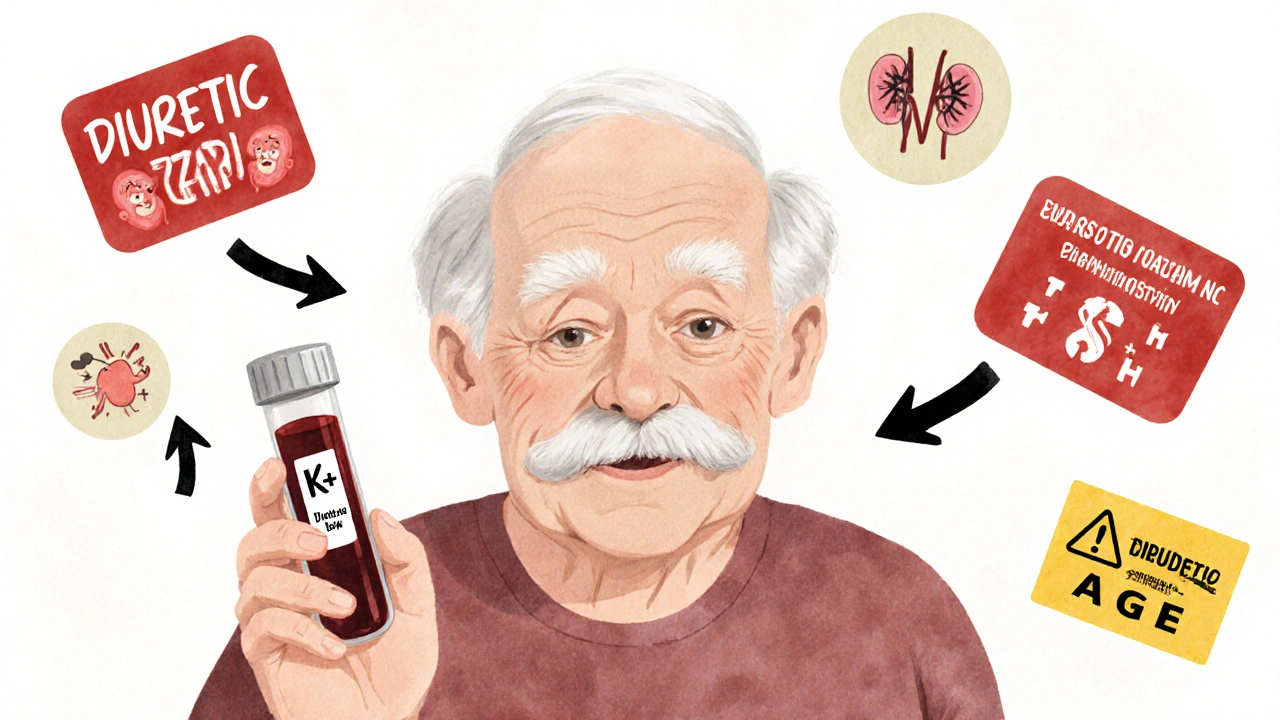
What you can do to protect yourself
There’s no need to stop atenolol if it’s working for you. But you do need to be proactive.
- Ask for regular blood tests. Most guidelines recommend checking electrolytes within 2-4 weeks of starting atenolol, especially if you’re also on a diuretic. After that, every 3-6 months is reasonable unless you have kidney disease.
- Don’t self-prescribe potassium supplements. Too much potassium can be just as dangerous as too little, especially with atenolol. Always get it checked first.
- Watch your salt intake. If you’re on a low-sodium diet, make sure it’s medically advised-not just trendy. Some people cut salt too hard and end up with hyponatremia.
- Stay hydrated, but don’t overdo water. Drinking 2-3 liters a day is fine. Chugging a gallon won’t help and might hurt.
- Know the red flags: persistent muscle weakness, irregular heartbeat, confusion, or sudden dizziness. Don’t wait until your next appointment.
Alternatives if electrolytes become a problem
If you’re struggling with electrolyte issues on atenolol, your doctor might consider switching you to another beta blocker. Not all are the same.
Metoprolol, for example, is less likely to affect potassium levels and is often preferred in patients with kidney disease. Carvedilol has antioxidant properties and may be gentler on electrolyte balance. Some patients benefit from switching to an ACE inhibitor or ARB, especially if they have diabetes or protein in their urine.
But switching isn’t always simple. If you’ve had a heart attack or have severe hypertension, atenolol may still be the safest choice. The goal isn’t to avoid atenolol-it’s to manage the risks smartly.
What your doctor should be monitoring
Good care means more than just writing a prescription. Your doctor should be tracking:
- Serum potassium levels (target: 3.5-5.0 mmol/L)
- Sodium levels (target: 135-145 mmol/L)
- Renal function (creatinine and eGFR)
- Heart rhythm (especially if you have a history of arrhythmia)
- Medication interactions (diuretics, NSAIDs, ACE inhibitors)
If you’re on multiple medications, ask for a medication review. Many people don’t realize that common painkillers like ibuprofen can worsen kidney function and raise potassium levels when combined with atenolol.
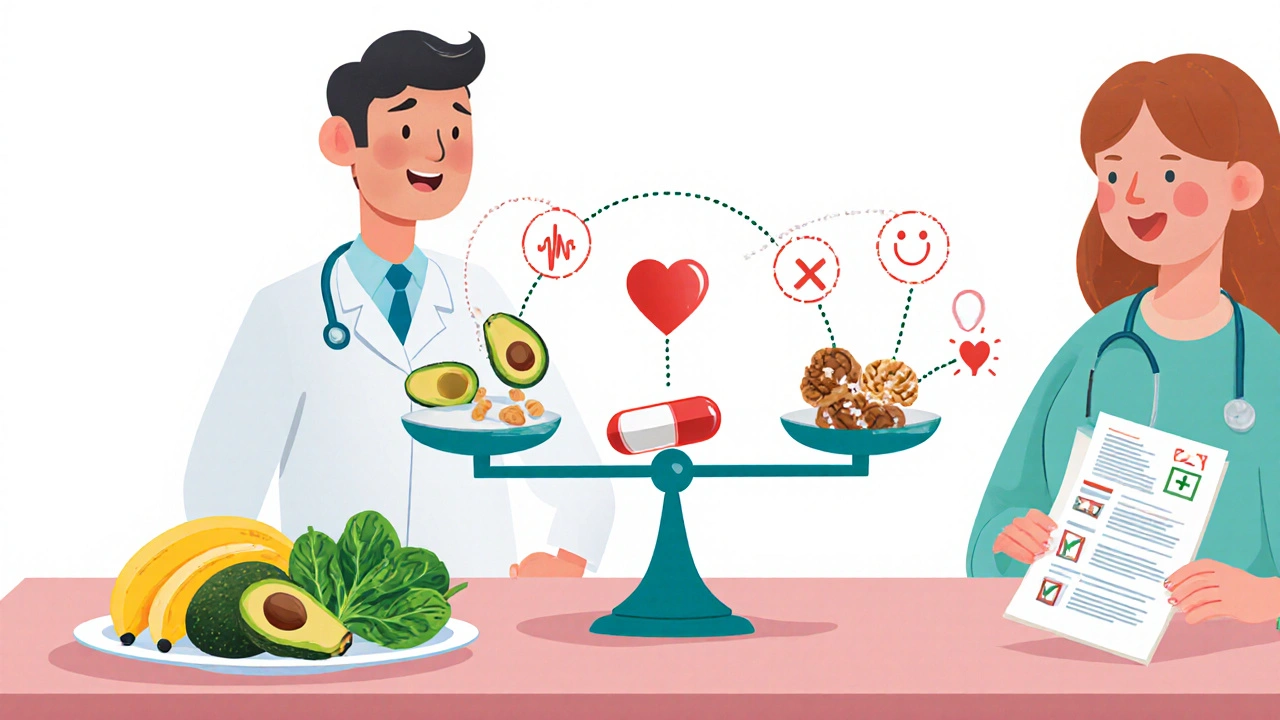
Real-life example: What went wrong
A 71-year-old woman in Perth was prescribed atenolol 50 mg daily for high blood pressure. Two weeks later, she started feeling weak and dizzy. She thought it was the heat. She didn’t tell her doctor until she fell at home. Blood tests showed potassium at 2.9 mmol/L and sodium at 132 mmol/L. She’d been taking a diuretic for years and hadn’t had a blood test in 14 months. After stopping the diuretic, adjusting her atenolol dose, and starting potassium supplements under supervision, her levels returned to normal in six weeks.
Her story isn’t rare. It’s preventable.
When to get help immediately
Call your doctor or go to urgent care if you experience:
- Chest pain or palpitations
- Severe muscle cramps or paralysis-like weakness
- Confusion, slurred speech, or seizures
- Heart rate below 50 bpm with dizziness
These aren’t normal side effects. They’re warning signs.
Bottom line
Atenolol is effective. But like all medications, it’s not risk-free. Electrolyte imbalances are a quiet, often overlooked side effect that can become serious if ignored. The good news? With simple blood tests and awareness of your symptoms, you can stay safe while keeping your blood pressure under control.
Don’t assume your doctor is monitoring your electrolytes. Ask. Get tested. Know your numbers. Your heart will thank you.
Can atenolol cause low potassium?
Yes, atenolol can contribute to low potassium (hypokalemia), especially when taken with diuretics. While atenolol itself doesn’t directly lower potassium, it can interfere with how the kidneys regulate electrolytes. In patients already losing potassium through diuretics, atenolol can make the imbalance worse by reducing the body’s ability to compensate.
Can atenolol cause high potassium?
Yes, in some cases-especially in people with kidney disease or those taking ACE inhibitors or ARBs. Atenolol can reduce aldosterone activity, which helps the kidneys excrete potassium. When this system is impaired, potassium can build up, leading to hyperkalemia. This is more common in older adults and those with chronic kidney disease.
How often should I get my electrolytes checked on atenolol?
If you’re starting atenolol or adding a diuretic, get blood tests within 2-4 weeks. After that, every 3-6 months is standard for healthy adults. If you have kidney disease, diabetes, or are over 65, your doctor may recommend testing every 3 months. Always get tested before any major lifestyle changes like starting a low-sodium diet.
Should I take potassium supplements with atenolol?
Never take potassium supplements without a doctor’s order. Atenolol can raise potassium levels in some people, and too much potassium can cause dangerous heart rhythms. Only supplement if your blood test shows low potassium and your doctor recommends it. Foods like bananas, spinach, and potatoes are safer ways to support healthy levels.
Can I drink alcohol while taking atenolol?
Moderate alcohol is usually okay, but it can worsen low blood pressure and dizziness-especially if you already have low sodium or potassium. Alcohol also dehydrates you, which can make electrolyte imbalances worse. Limit intake to one drink per day, and avoid binge drinking. If you feel lightheaded after drinking, talk to your doctor.
What foods help balance electrolytes while on atenolol?
Focus on whole foods: bananas, oranges, sweet potatoes, spinach, avocados, and beans for potassium; dairy, seafood, and salted nuts for sodium; and pumpkin seeds, almonds, and whole grains for magnesium. Avoid processed foods high in sodium but low in nutrients. A balanced diet supports natural electrolyte balance better than supplements.
Does atenolol affect sodium levels?
Yes, atenolol can contribute to low sodium (hyponatremia), especially in older adults or those who drink excessive water. It doesn’t directly cause sodium loss, but it can reduce the kidney’s ability to concentrate urine. This is more likely if you’re also on diuretics or have conditions like SIADH. Symptoms include confusion, nausea, and headaches.
Can I stop atenolol if I have electrolyte issues?
Never stop atenolol suddenly. Abrupt withdrawal can trigger rebound high blood pressure or even a heart attack. If you’re having side effects, talk to your doctor. They may adjust your dose, switch medications, or treat the imbalance while keeping you on the drug. Safety comes from management-not abrupt changes.




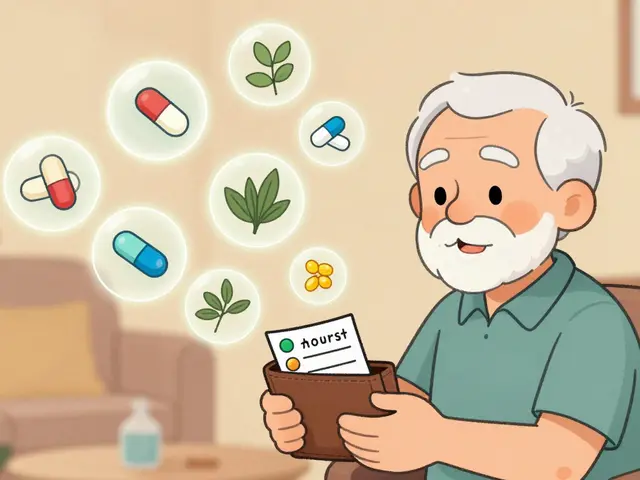
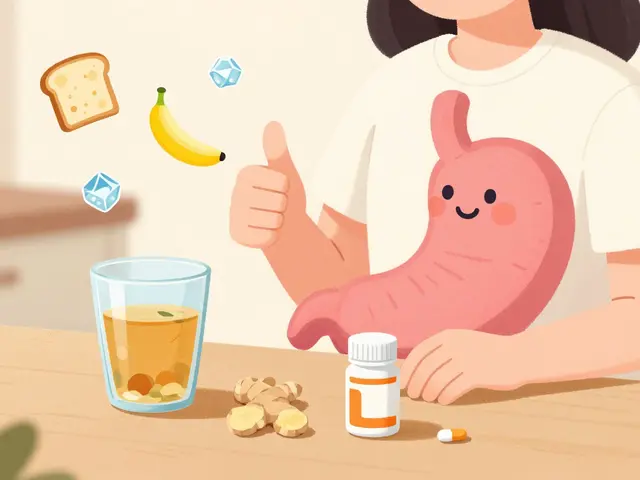
14 Comments
Man, I was on atenolol for two years and never knew about this. I thought my muscle cramps were just from working out too hard. Got my potassium checked last month-2.8. Doctor flipped out. Now I eat bananas like they’re going out of style. Thanks for the heads up, this saved me from a trip to the ER.
Of course the article doesn’t mention that atenolol is basically a 1970s drug that pharma keeps prescribing because it’s cheap and no one has the guts to phase it out. Metoprolol does the same thing without the electrolyte drama. But hey, if you like being a lab rat, go ahead.
It is not accurate to assert, without qualification, that atenolol directly interferes with aldosterone activity. The pharmacokinetic profile of atenolol is renally excreted, and its effect on electrolytes is indirect, mediated primarily through hemodynamic changes and renal perfusion alterations. Furthermore, the study cited-Journal of Clinical Hypertension, 2023-is observational, and therefore incapable of establishing causality. One must exercise extreme caution in extrapolating population-level data to individual clinical decision-making.
I'm so tired of doctors just prescribing this stuff and never checking labs!!! My mom died because they didn't check her potassium for 18 months!! She was on atenolol AND lasix!! And they said 'it's just aging'!! I'm so angry right now!! Please, if you're on this drug, get tested!! Don't wait!!
They don’t want you to know that the FDA approved atenolol in 1976 without proper long-term electrolyte studies. The same people who approved it also approved aspartame. Coincidence? I think not. Your blood pressure isn’t the enemy-Big Pharma is. They profit more from managing side effects than curing the root cause. Eat real food. Move. Sleep. Stop taking poison.
Anyone who says ‘just get tested’ is missing the point. Most primary care docs don’t even know what eGFR stands for. I had to drag my 72-year-old dad to a nephrologist after his potassium hit 5.8. His PCP said ‘it’s probably just from the oranges.’ Oranges. He was on atenolol and lisinopril. That combo is a death sentence waiting to happen.
Wait-so you’re telling me that a beta-blocker that’s been around since the 1970s… might… have… side effects?!? Shocking. Next you’ll tell me that smoking causes cancer. Or that water is wet. I mean, I guess if you’re a medical professional who reads actual journals and not just drug reps’ brochures… you might’ve known this already. But for the rest of us… wow. Mind blown.
Why are we letting foreigners dictate our medicine? Atenolol was developed in the UK, but the U.S. has better doctors and better labs. If you’re from a country with bad healthcare, maybe you’re getting bad results. In America, we monitor. We test. We adjust. If you’re having problems, it’s because you’re not following protocol-not because the drug is flawed.
I’ve been on atenolol for 10 years. My doctor told me to get blood work every 6 months. I did it for 2 years. Then I stopped. Why? Because every time I went, they changed my meds. I got dizzy. I got weak. I started thinking… what if they’re just trying to get me on more drugs? What if they’re trying to make me dependent? I haven’t had a blood test in 4 years. My body knows what it needs. I trust it more than the system.
Stay consistent. Get your labs. Don’t wait for symptoms. If you’re on atenolol + diuretic, quarterly checks are non-negotiable. Your heart doesn’t care if you’re busy. Your kidneys don’t care if you forgot. Do the work. It’s not hard. It’s not expensive. It’s life-saving.
EVERYTHING IS A CONSPIRACY. Atenolol? Made by the Illuminati to keep you docile. Potassium? The government controls the bananas. They don’t want you strong. They want you weak. They want you dependent. The real cure? Fasting. Sunlight. Raw garlic. And never trusting a doctor who wears a tie. I’ve been off all meds for 7 years. My BP is 98/62. No pills. No labs. Just truth.
my doc just put me on metoprolol after my potassium dropped to 3.1 😭 i started eating more spinach and sweet potatoes 🥔🥬 and i feel way better! also, i drink coconut water now-so good and natural! 💚 don’t panic, just get tested and tweak your diet! you got this!!
You people are so naive. You think this is about potassium? This is about control. The system wants you dependent on pills. They want you scared of your own body. They want you to believe you need a doctor to tell you when to eat a banana. What if your body knows better than the lab results? What if the real problem is not your electrolytes-but your trust in broken institutions?
This is exactly why I always tell my patients: don’t just take the script. Ask why. Ask how often. Ask what alternatives exist. Most people don’t know they have the right to ask. You’re not being difficult-you’re being responsible. Keep asking. Keep learning. You’re not a patient. You’re a partner in your own care.